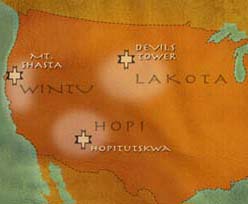In response to this:
Indian self-government, and therefore sovereignty, was not recognized or acknowledged until the 'Indian Reorganization Act' of 1934, which restored tribal lands lost under the Dawes Act and permitted tribes finally to reorganize under specific Federal laws thereafter enacted for purposes of self-government. All laws affecting and effecting Native 'sovereignty' have been enacted since those particular pieces of legislation.two nationally recognized experts in Indian law wrote this:
The statement written to you was thoroughly inaccurate.
Felix Cohen, one of the main architects of the Indian Reorganization Act (IRA) and drafter of an Interior Department Solicitor's Opinion construing that Act, made it clear that the IRA was recognizing existing tribal sovereignty, not creating it. In 1934, Interior Department Solicitor Nathan Margold issued that opinion, noting that the IRA allowed tribes organizing under its terms to exercise all powers recognized under "existing law." Solicitor Margold delivered the following opinion as to the meaning and scope of such powers:
Perhaps the most basic principle of all Indian law, supported by a host of decisions hereinafter analyzed, is the principle that those powers which are lawfully vested in an Indian tribe are not, in general, delegated powers granted by express acts of Congress, but rather inherent powers of a limited sovereignty which has never been extinguished. Each Indian tribe begins its relationship with the Federal Government as a sovereign power, recognized as such in treaty and legislation. The powers of sovereignty have been limited from time to time by special treaties and laws designed to take from the Indian tribes control of matters which, in the judgment of Congress, these tribes could no longer be safely permitted to handle. The statutes of Congress, then, must be examined to determine the limitations of tribal sovereignty rather than to determine its sources or its positive content. What is not expressly limited remains within the domain of tribal sovereignty, and therefore properly falls within the statutory category, "powers vested in any Indian tribe or tribal council by existing law."
This was the understanding of the United States as of the time the IRA was adopted in 1934.and this:
The brief answer is that tribal sovereignty is not dependent on federal legislation, and predates the federal system. See Justice John Marshall, the Cherokee case, acknowledging domestic dependent nations. Congressional action is not necessary to establish sovereignty.Comment: I trust that clears the matter up. For more on the subject, see
The Facts About Tribal Sovereignty.



1 comment:
No, my challenge was:
In short, through Supreme Court decisions and Congressional acts, the US government has recognized tribal sovereignty since the 1800s. Subsequent laws may have affirmed or strengthened this sovereignty, but they did not create it.
If you disagree, tell us the specific law(s) you think "created 'sovereignty' for Native 'Nations'." Good luck with your answer.
I addressed your Felix Cohen quote in my first response to your claim about tribal sovereignty. Unlike the Cohen quote I provided, your quote tells us nothing about when it originated.
The fact remains that you misstated when tribal sovereignty was "created" (answer: never) and I corrected you. Instead of obscuring this point with verbiage, try to deal with it.
Do you have any quarrel with the explanation of sovereignty provided by the two scholars I consulted? If so, let's hear it.
Post a Comment